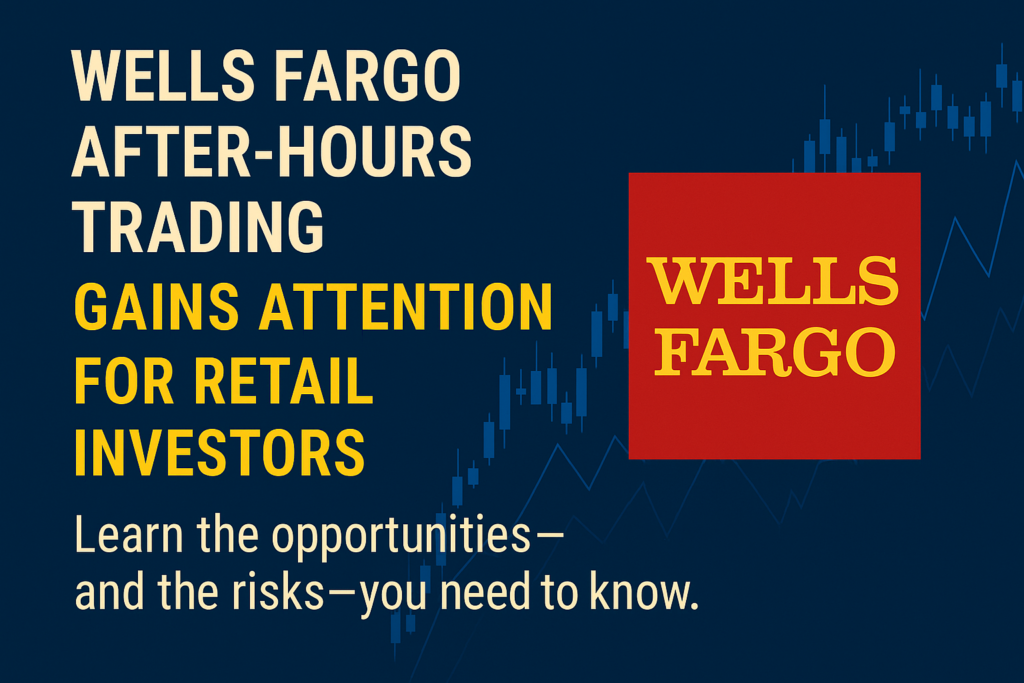Wells Fargo has recently entered headlines again—not for traditional banking services, but for the rising interest in after-hours trading connected to its stock. As more platforms expand access to extended-hours markets, retail traders are beginning to explore the opportunities (and risks) that come with trading outside the usual 9:30am–4:00pm window.
📈 What Is After-Hours Trading?
After-hours trading refers to the buying and selling of stocks outside regular market hours, usually from 4:00 PM to 8:00 PM (ET). This period allows investors to respond to late-breaking news, earnings reports, or global events that can shift sentiment before markets reopen.
Wells Fargo (WFC), a popular stock among both institutional and retail investors, often sees price volatility in extended sessions—especially after earnings calls or Fed-related news.
🔍 Why Is This Trend Growing?
- Retail Access
Platforms like Robinhood, Webull, and E*TRADE now offer extended-hours trading, making it easier for everyday investors to participate. - FOMO on Earnings
Many traders don’t want to wait overnight if a company announces quarterly results after the bell. WFC is known for earnings that move markets. - Global Market Influence
As international events increasingly impact U.S. stocks, after-hours sessions are becoming a strategic tool for active traders.
⚠️ Key Risks to Know
While the opportunity to trade off-hours sounds appealing, there are important risks to understand:
- Lower Liquidity: There are fewer participants, which means wider spreads and more volatility.
- News Moves Fast: If you’re late to react, you may enter at an unfavorable price.
- Limit Orders Only: Many brokers only allow limit orders in after-hours, which may not execute at all.
✅ Is It Worth It?
If you’re a retail trader who follows news closely and uses limit orders wisely, after-hours trading—especially on names like Wells Fargo—can offer a tactical edge. But for beginners, caution is advised. Volatility can be a double-edged sword.
Takeaway: After-hours trading is no longer just for hedge funds. With more access and tools, retail investors are now able to react to news in real time—but they must weigh the risks before jumping in.







